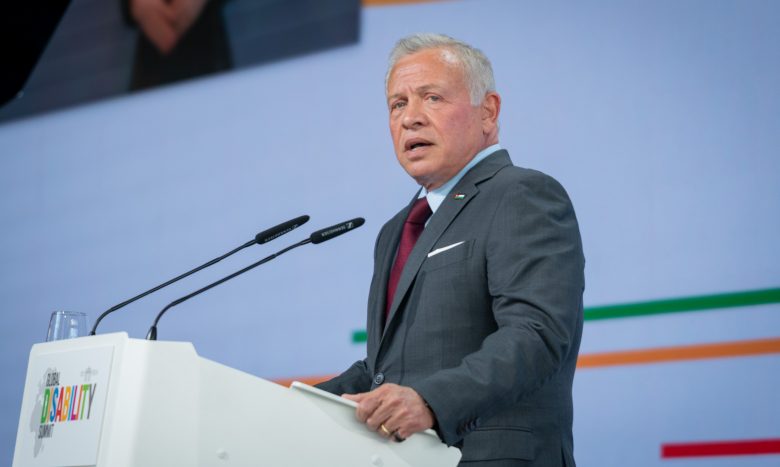
Jordan Daily – The third Global Disability Summit concluded in Berlin with tangible commitments to advance disability inclusion. Persons with disabilities, who make up 15 per cent of the global population—approximately 1.3 billion people—are often left out of development projects.
In response to this gap and the backdrop of shrinking aid for inclusion, the Summit introduced a new goal: ensuring that at least 15 per cent of development projects at the country level focus on disability inclusion. This target is captured in the Amman-Berlin Declaration, which was adopted today by over 80 governments and organizations, the Summit noted in as statement sent to Jordan Daily.
Co-hosted by the German Development Ministry, the Hashemite Kingdom of Jordan, and the International Disability Alliance (IDA), the Summit brought together 4,500 participants from nearly 100 countries, including persons with disabilities, government representatives, and civil society leaders.
Over the course of more than 60 sessions, discussions focused on strengthening the implementation of the UN Convention on the Rights of Persons with Disabilities (CRPD) and ensuring that commitments lead to actionable change.
At the opening ceremony, HE Olaf Scholz, the Federal Chancellor of the Federal Republic of Germany reaffirmed Germany’s commitment to disability inclusion, especially in a time when countries are cutting down on their inclusion funding. The Chancellor committed to the 15% target and announced a joint initiative on inclusive education with Jordan.
His Majesty King Abdullah II called for ongoing commitment and action to ensure that all individuals can live with dignity, happiness, and hope, stressing that inclusion is not merely about accessibility, but it is also about recognising the inherent potential in every human being and creating environments where everyone can contribute.
Nawaf Kabbara, President of the International Disability Alliance (IDA), stressed that true disability inclusion cannot be achieved unless Organizations of Persons with Disabilities (OPDs) are at the table where funding decisions are made. He emphasized that inclusion must be “with” OPDs, not “for” OPDs.
The Amman-Berlin Declaration sets a target that at least 15 per cent of development projects be specifically designed to promote disability inclusion. Currently, only six per cent of development projects directly contribute to this goal.
German Development Minister Svenja Schulze noted that development policy can only succeed when all stakeholders collaborate, highlighting that the Amman-Berlin Declaration is a global commitment, not just a promise from donor countries. She emphasized that true inclusion benefits not only the 15 per cent of people with disabilities, but society as a whole.
Several key initiatives were also announced during the Summit. The UK’s Foreign, Commonwealth & Development Office (FCDO) committed to launching an Assistive Technology Investment Vehicle through the AT2030 programme, aiming to raise $60 million by 2026, while co-chairing the Global Action on Disability (GLAD) Network to foster global partnerships for disability inclusion.
UNICEF committed to allocating 10 per cent of its annual budget to children with disabilities by 2030, expanding data collection, and scaling inclusive education and protection systems in 50 countries. IDA pledged to strengthen OPDs in over 100 countries to influence policy, launch a leadership programme for 80 young persons with disabilities, and partner with the UN Global Disability Fund to advance the implementation of the CRPD in 50 countries.
In Jordan, 88 national organisations—including government bodies, civil society, academia, media, and the private sector—made 133 commitments to promote the rights of persons with disabilities. During a dedicated session, His Excellency Professor Azmi Mahafzah, Minister of Education, announced five strategic, rights-based commitments, including a JOD 90 million investment by the Association of Banks in Jordan, banks operating in the country, the Ministry of Education, the Ministry of Health, and the Higher Council for the Rights of Persons with Disabilities to enhance inclusive education and health services, and transform 250 public schools. These pledges highlight Jordan’s strong commitment to dignity, equality, and the full participation of persons with disabilities.
A new partnership between Germany and the African Union was announced to strengthen organizations of persons with disabilities across Africa, with a focus on youth and women. The multilateral education initiative Education Cannot Wait will collaborate with Germany, the United Kingdom, IDA, and the Girls’ Education Challenge to improve data collection and accountability for inclusive education in crisis-affected regions by 2028.
All commitments will be published here after the Summit, so that their implementation can be transparently monitored.
The Amman-Berlin Declaration can be found here. There you will also find an overview of all supporters.

